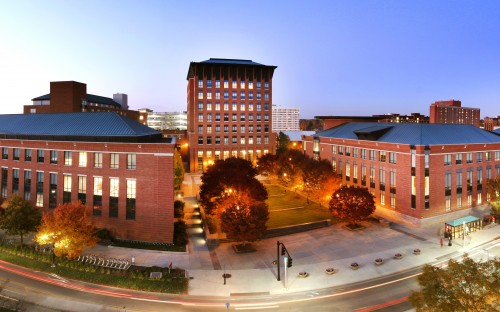
Where do these value propositions come from? “It’s through principled leadership,” Sarah Mangia, the senior director of the Leadership Initiative at The Ohio State University Max M. Fisher College of Business, explains.
“We define principled leadership as the alignment of a leader’s behavior, or perceived behavior, with his or her values,” she continues.
“Principled leaders are those who articulate their values, make decisions guided by their values, and consistently live their values in a transparent manner, all while clearly adhering to the ethical codes and standards of their environment.”
Society now expects corporations to actively contribute to society and be more transparent than ever before. In the age of social media, when a poorly-judged tweet or an off-the-cuff remark can be broadcast around the world in seconds, principled leadership is an important way for businesses to garner goodwill.
Big companies—the likes of Unilever, Google, General Electric, and Deloitte—have committed to drive social change; from improving health and well-being to reducing their environmental impact.
This principled leadership isn’t just for customers; it impacts on recruitment as well. MBA students today want to work for a company whose values align with their own, so a company’s values can affect the talent it’s able to attract—a clear demonstration of the hunger for principles at the heart of business.
Fisher College of Business has a long history of principled leadership with Max M. Fisher, the American businessman who helped transform the top-tier business school, well known for his philanthropy impacting causes locally, national, and around the world through the Max & Marjorie S. Fisher Family Foundation.
Today, the school’s Leadership Initiative aims to draw on its values and history to develop and train the principled leaders the world needs.
“We are returning to our roots with a renewed focus on leadership scholarship and its impact on non and for-profit sectors of the community,” Sarah continues.
“The Fisher Leadership Initiative is dedicated to advancing and accelerating the leadership skills and effectiveness of our students and graduates. By emphasizing leadership development as a vital piece of the MBA, we are able to prepare students for leadership roles and responsibilities through academic coursework, experiential learning, and practical application of skills.”
MBA students at Fisher College of Business—ranked 27th in the US News & World Report 2018—are developing the leadership skills employers are after.
93 percent of Fisher’s full-time MBAs land jobs within three months of graduation. Top MBA employers include big-name firms like Amazon, Apple, JPMorgan Chase, McKinsey, and Uber. Fisher’s full-time MBA ranked third globally for opening new career opportunities by the Economist in 2015.
As Sarah explains, “the business world is changing at a pace never seen before, and change demands action based on ethics, insight, and understanding—that’s what principled leadership is all about.
“It’s about seeing the world as it is, and how it should be, and guiding people and organizations in directions that serve customers, shareholders and the community in equal measure.”
RECAPTHA :
2c
b4
b7
e1








